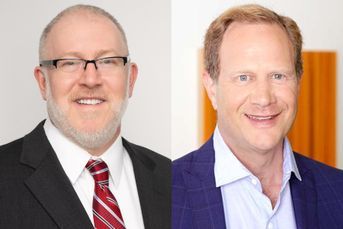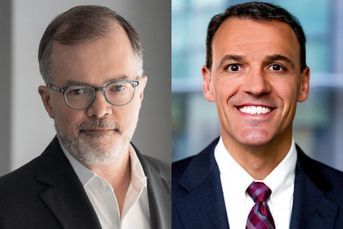Young adults have high ideals but low retirement account balances: TIAA study

Forty-two percent of the young adults surveyed say they’re living paycheck to paycheck, and only 33% say they could handle an unexpected major expense.
Young adults admirably want to change the world for the better. That said, they had better fix their own financial futures as well, because there’s trouble brewing there.
According to a report from the TIAA Institute and Business for Impact’s AgingWell Hub at Georgetown University, more than half (56%) of respondents, all aged 24 to 35, feel that they have a role in solving global problems like climate change, social injustice and political divisions. However, when it comes to their own finances, 42% say they’re living paycheck to paycheck, and only 33% say they could handle an unexpected major expense.
Furthermore, the survey showed 51% of respondents say they don’t expect to do as well financially as their parents.
Leslie Beck, principal and owner at Compass Wealth Management, points out that young people have always tended to be more passionate about their role in shaping the future. That said, she notes that the younger you are, the more daunting your financial challenges will seem.
“For one, salaries tend to be low for those just starting out. Combine that with the fact that many of them have student debt and expenses they may not have faced before, including everything from rent, food and utilities, and it’s only natural that younger generations will feel squeezed financially,” Beck said. “That’s why learning how to budget is so crucial at that stage in life. Knowing where your money is going is the first step toward financial empowerment.”
Nina Lloyd, president and CEO of Opus Financial Advisors, part of Advisor Group, said young adults often feel overwhelmed when dealing with their finances during the first few years of their careers as a result of student loan debt and a new cost of living. She added that the situation does get better with time, however.
“The good news is that a disciplined approach to managing your money can really move the needle and set the stage for long term financial success,” Lloyd said.
For the record, the survey did offer some encouraging data. For example, more than one-third (36%) of respondents said saving for retirement is one of their top three financial goals, and almost three in four (72%) indicated they are saving in a retirement plan, either through their employer (48%), one that they purchased on their own (13%), or both (11%).
“The sooner young people start saving for retirement, the more their money has time to grow, and the better they’ll feel about their financial futures,” Jeanne de Cervens, director of the AgingWell Hub, said in a statement. “We can’t have people this early in their careers resigning themselves to thinking they won’t do as well financially as their parents did. We need employers, community groups and others to step up and show young workers how they can plan and get ahead.”
[More: Gen Z members may need to temper FIRE talk, study shows]
Market crosscurrents have high-net-worth investors playing defense
Learn more about reprints and licensing for this article.








